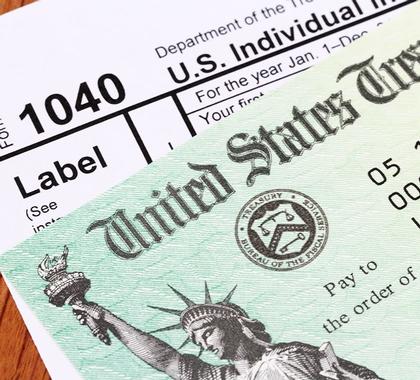New York Gov. Andrew Cuomo announced his 2021-2022 budget proposal, which unsurprisingly contains a myriad of tax hikes for the Empire State. Most notably, Cuomo proposed raising taxes on New York’s wealthiest citizens to 14.7 percent, which would mark the highest state and local tax rate in the country. New York holding such an inglorious title is almost predictable to those who follow state budget and tax policies. However, how much longer can New York lose residents before the lesson is learned. Such increases drive taxpayers out of the state and hurt the state economically.
The overall budget proposal was announced as a multistep approached described by Cuomo as raising revenue, cutting expenses, and borrowing from federal entities in order to address the state’s unpreceded budget shortfall due to the coronavirus pandemic. New York’s budget deficit now stands at $15 billion and while all states experienced budget shortfalls in 2020 due to the coronavirus related recession, New York’s spending and taxation programs had the state in the red long before COVID-19 hit the shores of our nation. The attempt at a “millionaire’s tax” is an unreliable and short-sighted fallback for Gov. Cuomo.
Higher taxes motivate wealthy taxpayers to move to other states with more favorable tax codes, which means these wealthy taxpayers transport their income, capital, and tax revenues with them. The always promising projected revenue from so-called millionaire’s taxes have fallen short in states where they have been imposed. Relying on an alterable tax with a small base is historically unreliable and can lead to large budget deficits. In many cases, states with broader and flatter tax systems generate more revenue in a consistent and predictable manner.
Gov. Cuomo and the New York Assembly would do well to attempt to incentivize Americans to move to The Empire State, instead of taking measures to drive New Yorkers and New York businesses out. New York and other states with excessive tax burdens are seeing mass exoduses that are only increasing due to the fallout surrounding the COVID-19 pandemic and accompanying lockdown orders from mostly Democratic leaders. According to the U.S. Census Bureau, net domestic out-migration from 2010 through 2019 saw 1.4 million leaving New York; 912,000 leaving California; and 865,900 leaving Illinois.
Personal income and corporate tax hikes are generally considered to be the most destructive tax hikes because they disincentivize production, innovation, and investment. Recent studies show states with no income tax or with lower income taxes perform better economically while facilitating population growth and in-state job growth. As aforementioned, high income taxes deter economic development by discouraging higher-income-earners and new capital from moving into a state, or in this case, pushing high-earning New Yorkers out. A study by the Americans for Tax Reform Foundation found, “Each positive 1 percentage point tax burden differential between states decreases the ratio of income migration into the high-tax state by 6.78 percent in a given year.”
The Partnership for New York City released a report stating that when the pandemic eventually subsides, approximately one-third of the city’s 240,000 small businesses will be too economically crippled to reopen. The very last thing that New Yorkers need is larger businesses and corporations leaving as well. Often times, when state’s wealthiest taxpayers leave the state they take their investments in small businesses with them.
States with high tax rates grow more slowly than states with lower taxes, after considering other control factors. A ranking of all states by their overall tax burden ultimately shows that real personal income grows more on average in the states with the lowest state and local taxes as a percent of income.
Keeping all of this in mind, it would behoove the New York Assembly to carefully consider all of the economic fallout that would follow the passing of this tax-heavy budget proposal. Following the coronavirus pandemic, tax hikes are not a viable economic solution, particularly unreliable taxes such as increased income taxes. All taxes should be applied to a broad base and maintained at a low and economically competitive rate if New York wants to hold onto the remaining residents of the Empire State. Gov. Cuomo and the New York Assembly should focus on reopening the state as ways to inject tax revenue back into the state instead of flippant and capricious wealth taxes.
The following articles provide more information about sin taxes and tobacco harm reduction.
Ten Principles of State Fiscal Policy
https://heartland.org/publications-resources/publications/ten-principles-of-state-fiscal-policy
The Heartland Institute provides policymakers and civic and business leaders a highly condensed, easy-to-read guide to state fiscal policy principles. The principles range from “Above all else: Keep taxes low” to “Protect state employees from politics.”
Federal Tax Reform: The Impact on States
https://taxfoundation.org/federal-tax-reform-the-impact-on-states/
Nicole Kaeding and Kyle Pomerleau of the Tax Foundation examine the effect of the federal tax reform on the states and how they can use the changes to push for tax reforms of their own.
Tax Reform Moves to the States: State Revenue Implications and Reform Opportunities Following Federal Tax Reform
https://taxfoundation.org/state-conformity-federal-tax-reform/#9
This paper by Jared Walczak of the Tax discusses what options are available to states as they respond to federal tax changes. “In the wake of federal tax reform, states have a golden opportunity to move their own tax codes in a more simple, neutral, and pro-growth direction,” writes Walczak.
Tip Sheet: State Income Tax Reform
http://heartland.org/policy-documents/tip-sheet-state-income-tax-reform
This Policy Tip Sheet from The Heartland Institute examines state income taxes, documents economists’ judgment of them as the most destructive tax and a deterrent to economic development, and provides data showing states with no income tax perform better economically and enjoy greater job and population growth than those with higher taxes.
Taxing the Rich Will Bankrupt Your State
https://heartland.org/publications-resources/publications/taxing-the-rich-will-bankrupt-your-state
John Nothdurft explains the disadvantages and negative consequences of “millionaire” taxes and overtaxing the top income brackets.
________
Nothing in this Research & Commentary is intended to influence the passage of legislation, and it does not necessarily represent the views of The Heartland Institute. For further information on this and other topics, visit the Budget & Tax News website, The Heartland Institute’s website, our Consumer Freedom Lounge, and PolicyBot, Heartland’s free online research database.
The Heartland Institute can send an expert to your state to testify or brief your caucus; host an event in your state, or send you further information on a topic. Please don’t hesitate to contact us if we can be of assistance! If you have any questions or comments, contact Heartland’s government relations department, at [email protected] or 312/377-4000.




